A bathroom remodel is a highly exhilarating process that changes probably the most functional room inside your home into a luxury place. How long does a bathroom remodel project take? It remains one of the most frequent questions that homeowners have.
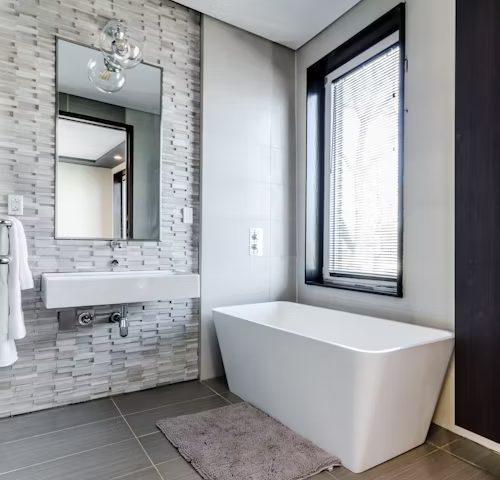
It would assist you in being better prepared and adjusting your expectations realistically by knowing how long a remodel of your bathroom might take. This article breaks down the typical timeline and phases, the variabilities that affect duration, and some tips to hastily increase the process.
Bathroom Remodel Timeline
A bathroom renovation is a job defined mainly by the size and complexity of a remodel. A typical full bathroom remodel takes 5 to 7 weeks on average. Some remodels can be squeezed into 3 to 4 weeks while others, very complex, may take 9 to 10 weeks or more.
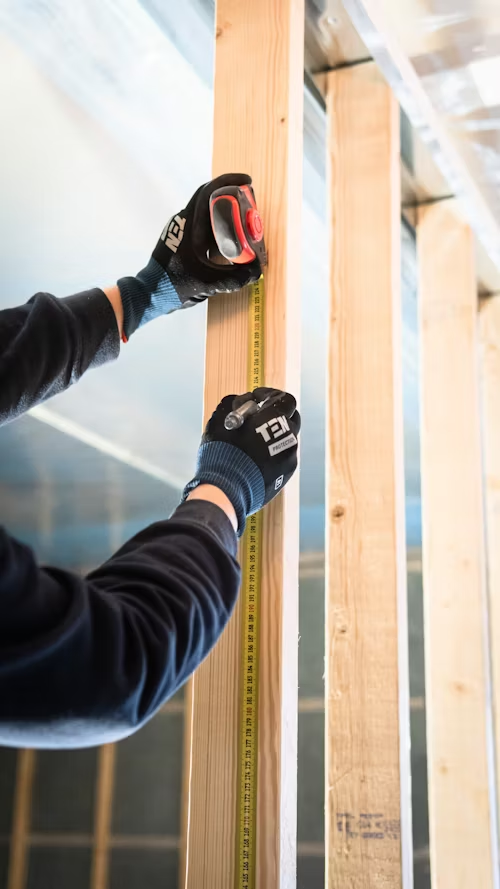
Phases of a Bathroom Remodeling
These represent different stages of the construction process in a bathroom remodel; at which each one consists of a series of individual tasks to be performed before advancing to the next stage. Familiarizing yourself with these will prepare you for the bathroom remodeling.
Pre-Construction Phase
Estimated Time: Minimum One Month
Planning and preparation occur in the pre-construction phase, typically three to four weeks if you already own the property you plan to renovate. Before any work begins, the old bathroom is assessed, including the removal of structural aspects like the frame, bathtub, and sink, and cleaning the exposed surfaces to prepare for new flooring and structure. Here’s what happens during this phase:
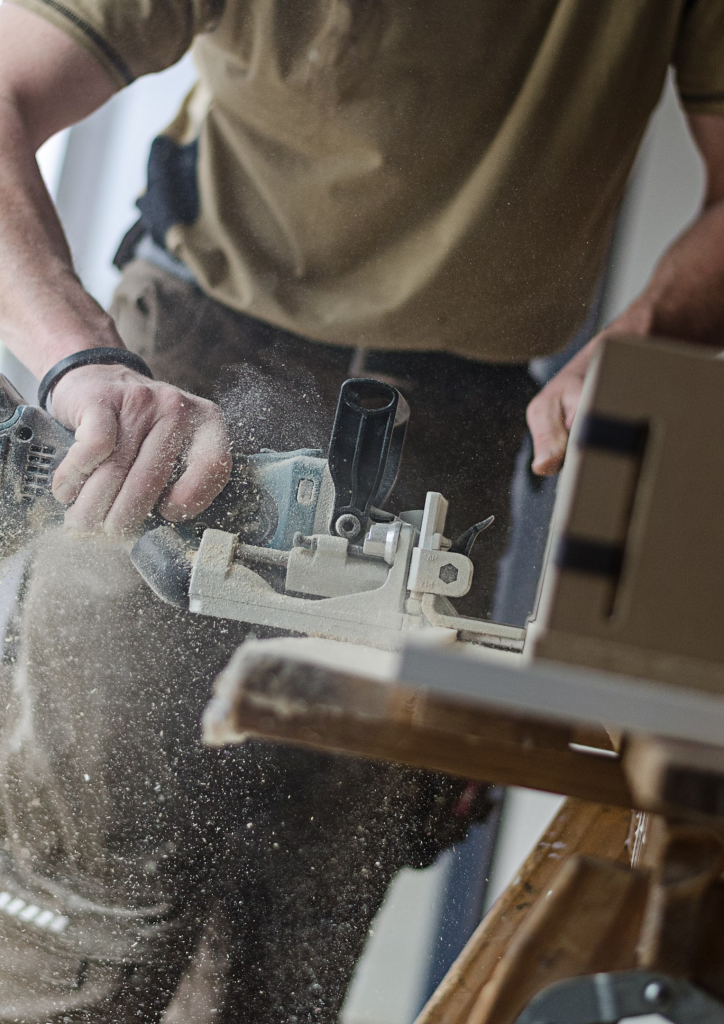
- Design and Budget: This is the first step in bathroom remodels. This whole stage includes all the design and development that will be used in your renovation. This includes working with the design team to develop architectural plans, total design layouts, and setting rough budgets. This section also falls into choosing the materials and fixtures, such as tiles and flooring, lighting, and cabinetry, among many others.
- Hire contractors: Finding a suitable professional to remodel a bathroom requires proper licensing of states and the knowledge to work with plumbing and electrical systems safely. It is finding only those bathroom remodelers that have appropriately licensed states and the basic knowledge to work with plumbing and electrical systems safely.
- This includes permits from the city or county where the house will be built. In some jurisdictions, other licenses may need to be obtained. Sometimes, it may just take a few weeks, whereas sometimes, it can go up to a few months.
- Site visit scheduling: Take the shortlist of a few and schedule a walk-through with your current space. Describe your vision to them, show them pictures or make drawings of what you would like to achieve in terms of the design of the space, and give a measurement area.
- Signing Contracts: After bids from contractors, review and sign the first contract with your contractor. Make your first front and decide on the upcoming construction schedule. Procure Material: Order the necessary amount of materials. This activity should be made early to avoid delays in waiting for material delivery once construction has started.
Construction Phase
Estimated Time: 5-7 Weeks
The construction phase is when the actual work happens, including tasks like installing the bathroom floor. The duration can vary widely based on the complexity of your remodel. Removing and painting the bathroom vanity is another task that can be part of this phase. Here’s a breakdown of what to expect during this phase:
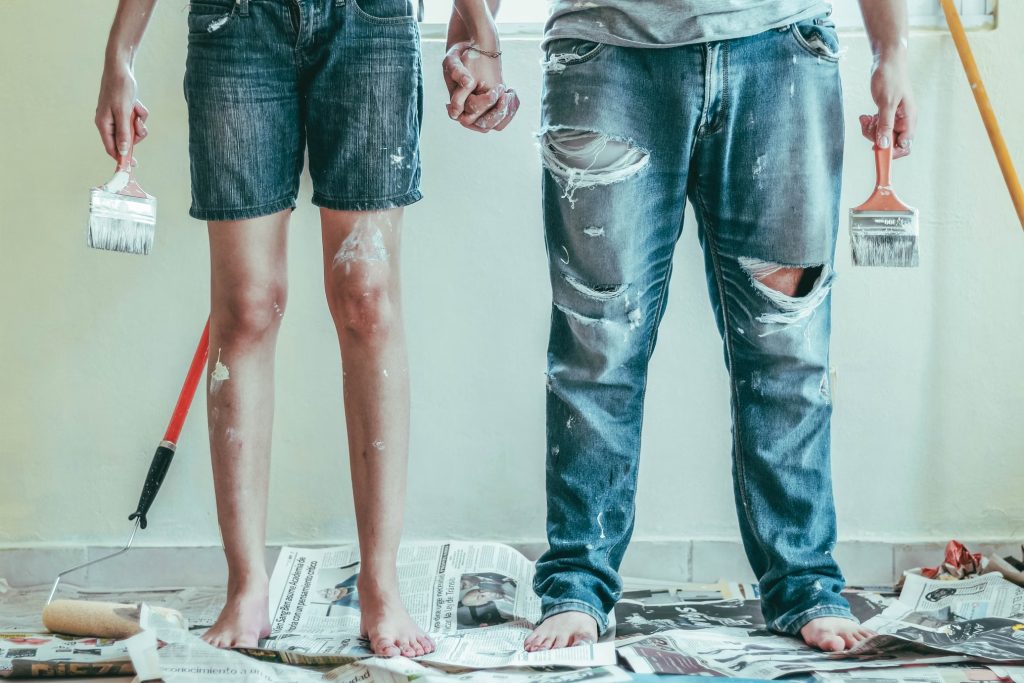
- Deconstruction: The bathroom fixtures, the floor, and sometimes part of the walls have to be removed in this case. It takes place within a few hours in simple renovations, while it may consume up to 2 days in an extensive remodeling, especially if exposing wall studs is necessary.
- Rough Carpentry – 2 days. This happens if there is any structural modification required in the house, i.e., moving walls or addition of new framing.
- Plumbing Rough-In: 1-2 days. A rough-in means installing new lines of plumbing or rearranging the plumbing that might stand in the way of a new fixture, such as a shower, tub, or toilet.
- Electrical Rough-In: 1-2 days. This, similar to plumbing, will involve running new electrical lines or modifying existing ones in preparation for new light fixtures, receptacles, and switches.
- First Inspection: 1 day. An inspection of the rough-in plumbing and electrical work to ensure everything meets the code requirements. You may lose a few days of scheduling for the inspection.
- Insulation: 1/2 day. Insulate the walls and ceiling of the bathroom to both energy and sound insulated.
- Drywall Hanging: 1-day Pros often hang new drywall very quickly—almost as soon as lightning. The one-day drywall finish process involves the steps of applying, drying, sanding, and in some instances repeating.
- Painting: 1 day. It is quickly and more efficiently executed before installing fixtures and bathroom flooring.
- Tile Work: 2 days. This is about the tiling of the walls, shower stall, and floor. The drying period of the mortar and grout may protract the operation process.
- Laying the floor: 2 days. This may be more or less, depending on the material, for instance, vinyl or tile.
- Cabinetry and Trim: 1 day. Cabinetry and trim placement usually get wrapped up in 1 day.
- Hookups and Fixtures: 2 days — connect plumbing fixtures: sink, toilet, and shower, install light fixtures, and install outlets.
- Final Inspection: 1 day. One more inspection is conducted to check that all the work being done conforms to the codes.
- Miscellaneous: 1.5 days – Remaining work, touching up, cleaning up**.**
Post-Construction Phase
Estimated Time: Minimum One Week
The post-construction phase involves the final touches and ensuring everything is up to standard.
- Final Walkthrough: Review the completed work with your contractor, noting any issues or concerns.
- Addressing Issues: The contractor will fix any problems identified during the walkthrough.
- Cleanup: Remove any remaining debris and clean the space thoroughly.
- Final Payment: Settle any remaining payments with your contractor.
Average Time for Bathroom Remodel
Although the average period a bathroom renovation takes varies by quite several factors, a complete renovation is completed within 5 to 7 weeks. The small projects can take about 3 to 4 weeks, but the more complex remodels can drag on to 9 to 10 weeks or even longer. An example of a typical small bathroom renovation timeline is shown below:
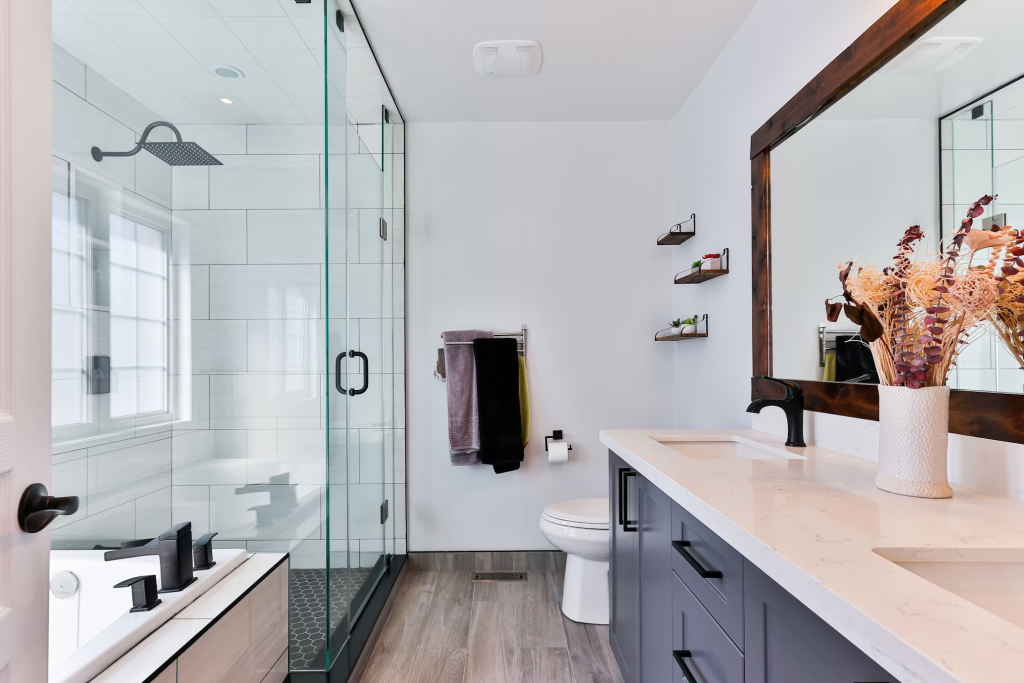
- Pre-construction research: 1-2 weeks
- Interviewing contractors: 1-2 weeks
- Applying for and obtaining permits: 1 week
- Signing contracts: 1-3 days
- Demolition: 1-2 days
- Rough carpentry: 2 days
- Plumbing rough-in: 1-2 days
- Electrical rough-in: 1-2 days
- First inspection: 1 day
- Insulation: Half a day
- Hang drywall: 1 day
- Finish drywall: 1 day
- Paint: 1 day
- Tile work: 2 days
- Flooring: 2 days
- Cabinetry and trim: 1 day
- Hookups and fixtures: 2 days
- Final inspection: 1 day
- Miscellaneous: 1.5 days
Factors Affecting the Timeline
Several factors can influence the timeline of your bathroom remodel:
- Scope of the Remodel: A full gut renovation will take longer than a simple cosmetic update.
- Material Availability: Custom or imported materials, like imported ceramic tile, can cause delays if they’re not readily available.
- Contractor Workload: Contractors working on multiple projects simultaneously might not be able to dedicate full-time effort to your remodel.
- Unforeseen Issues: Problems like hidden mold, plumbing leaks, or structural damage can add unexpected delays.
- Permits and Inspections: The time required to obtain permits and schedule inspections can vary.
- Design Changes: Making changes to the design or materials mid-project can extend the timeline.
Prepare for the Unexpected
Even with careful planning, unexpected issues can arise during a bathroom remodel. Here are some tips to prepare for and mitigate these surprises:
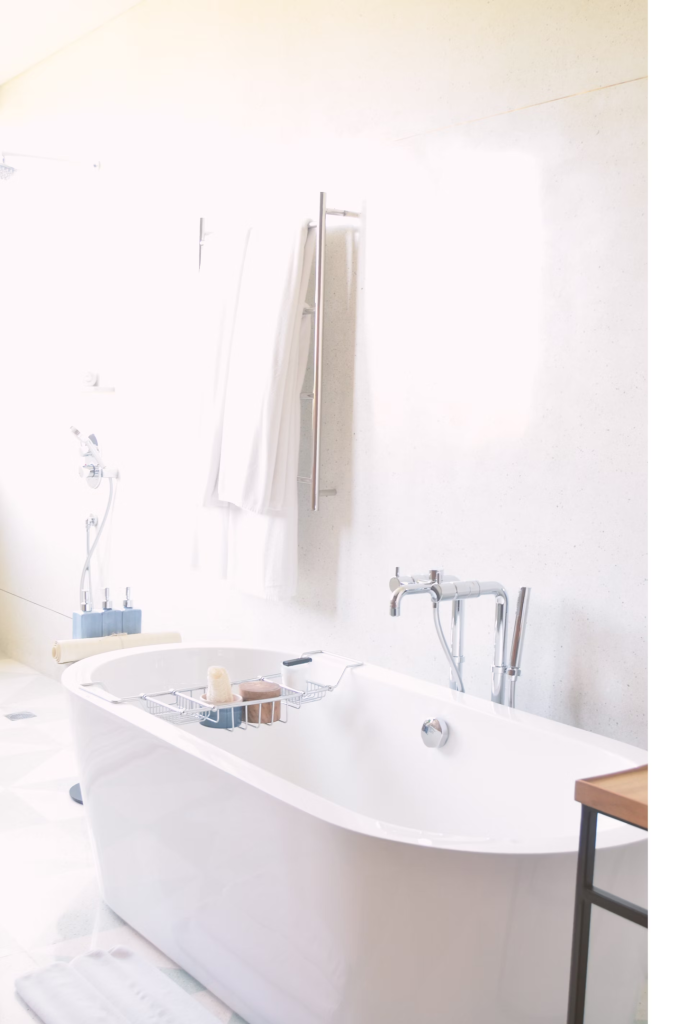
- Set a Realistic Budget: Include a contingency fund to cover unforeseen expenses.
- Plan for Delays: Build extra time into your schedule to accommodate potential delays.
- Maintain Open Communication: Regularly check in with your contractor to stay updated on progress and address any issues promptly.
- Be Flexible: Be prepared to make adjustments to your plans if necessary.
3 Ways to Expedite a Bathroom Remodel
While you can’t control every aspect of the remodeling process, there are steps you can take to help expedite your bathroom remodel:
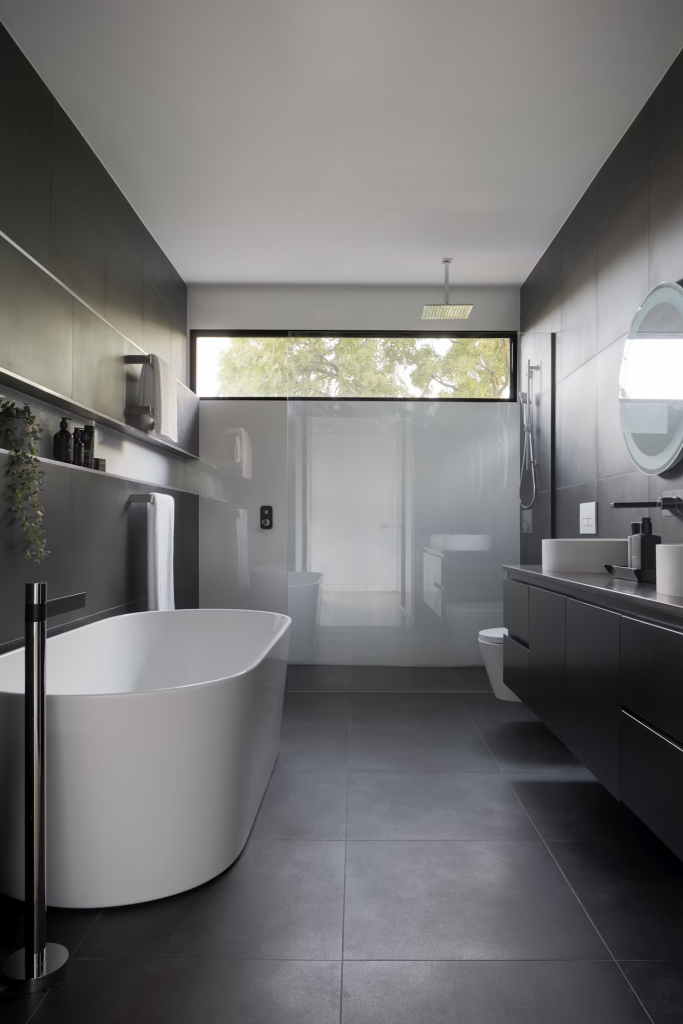
- Timely Payments: Ensure all payments are made on time to avoid work stoppages.
- Be Available: Respond quickly to contractor questions and requests to keep the project moving forward.
- Avoid Changes: Stick to your initial plans to avoid delays caused by change orders.
Conclusion
Your remodel can be incredibly functional and add value to your house. You can have better planning for realistic expectations, excellent preparation for surprises, and some tips to speed up the remodel according to the general timeline, phases, and potential factors that can affect the duration of a project. A few weeks, and now, in many cases, just a few months down the road, this result is a beautiful new bathroom that meets your needs and adds significant value to your home.










